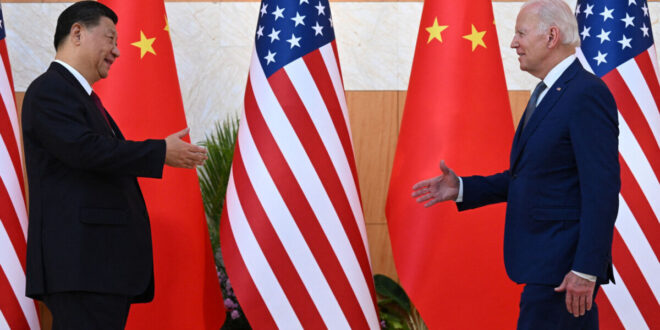President Joe Biden will use a long-delayed meeting with Chinese leader Xi Jinping to try and stabilize ties with Beijing.
The pair need to show a “clear ability to manage tension in a way that doesn’t spill over into crises that neither country wants to get into,” said Nirav Patel, former deputy assistant secretary of State in the Obama administration and now the CEO of the U.S.-based Asia Group consultancy.
Biden had hoped to come to the summit from a point of strength, presenting the U.S. as the reliable leader of a regional alliance of democracies – all aligned against Beijing. But domestic politics are threatening that narrative. Biden is scheduled to arrive late Tuesday night in San Francisco as congressional lawmakers struggle to pass a government funding bill, and disputes between the White House and senior Senate Democrats are threatening to derail Biden’s signature trade agreement that was slated to be unveiled at the APEC summit. That opens up an opportunity for Xi.
“Xi can use APEC as a forum to present China as a compelling alternative” to U.S. global leadership, said Craig Singleton, a senior fellow at the Foundation for Defense of Democracies, a nonprofit research institute. “And this message occurring at the same time as the U.S. is grappling with government funding negotiations, it feeds the narrative that the U.S. is unreliable and China represents an alternative.”
Biden will need to convince Xi that the U.S. and China still have wiggle room to cooperate. That’s a hard sell considering Biden calls Beijing a threat to the “rules based international order,” accuses it of committing genocide in Xinjiang against predominantly-Muslim Uyghurs, and has waged a three-year campaign to rally partners into coalitions that counter China’s growing diplomatic, economic and military muscle.
The U.S. is pursuing “comprehensive containment, encirclement and suppression against us,” Xi declared in a March speech to Communist Party officials.
The biggest accomplishment may be that the two men are talking at all, according to two of the officials. In many ways, the U.S. hopes are modest: restore the bilateral relationship to where it was in Bali, before tensions escalated.
“It’s not an auspicious time for American compromises toward China,” said Susan Shirk, former deputy assistant secretary of state and current chair of the 21st Century China Center at the University of California San Diego. The Chinese are also “not really energized to produce major deliverables.”
But there will likely be some successes. The White House plans to announce a new commitment by Beijing to stem the flow of chemicals to Mexico that cartels process into fentanyl. One of the officials said that communication between the two nations – including working toward setting up the San Francisco meeting – had grown easier in recent weeks. One highlight could involve the resumption of high-level military-to-military ties, an administration official told reporters last week. Beijing suspended those links as a reprisal for then-House Speaker Nancy Pelosi’s visit in 2022 to Taiwan.
 Geostrategic Media Political Commentary, Analysis, Security, Defense
Geostrategic Media Political Commentary, Analysis, Security, Defense





